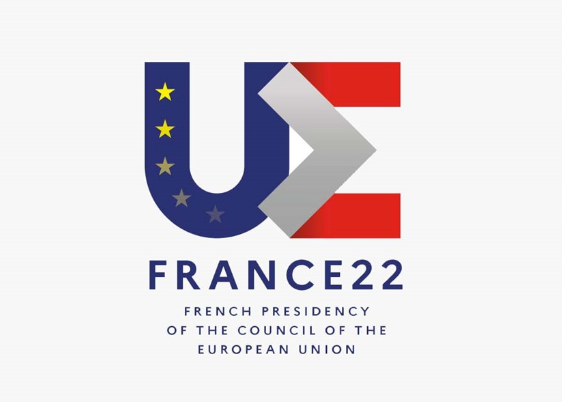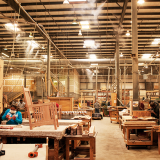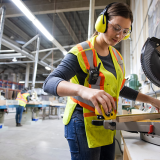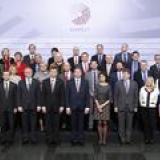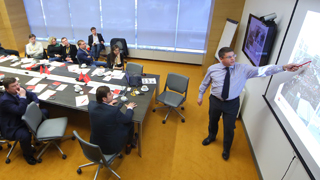
Diálogo social
O diálogo social inclui as negociações, consultas, ações conjuntas, discussões e intercâmbio de informações entre empregadores e trabalhadores. Um diálogo social eficaz, envolvendo uma série de atores a vários níveis, é um elemento-chave para moldar as condições de trabalho. Permite conciliar os interesses de trabalhadores e empregadores e contribui tanto para a competitividade económica como para a coesão social.
Os recentes debates políticos ao nível da UE sublinharam que, sobretudo desde a crise de 2008, o surgimento de novos debates sobre justiça social, democracia, qualidade do trabalho e novos modelos de relações de trabalho tem vindo a pôr em causa as tradicionais relações laborais e os tradicionais sistemas de diálogo social.
Trinta anos após a histórica inauguração do diálogo social europeu em Val Duchesse, Bruxelas, a Comissão instituiu um novo começo para o diálogo social num evento de alto nível que reuniu, em 5 de março de 2015, organizações de parceiros sociais oriundas de toda a Europa. O diálogo social europeu é um instrumento da política social da UE que contribui diretamente para moldar a legislação e as políticas laborais da UE.
- Evento da Comissão Europeia: Um novo começo para o diálogo social
- Artigo Eurofound: De Val Duchesse a Riga: como relançar o diálogo social?

